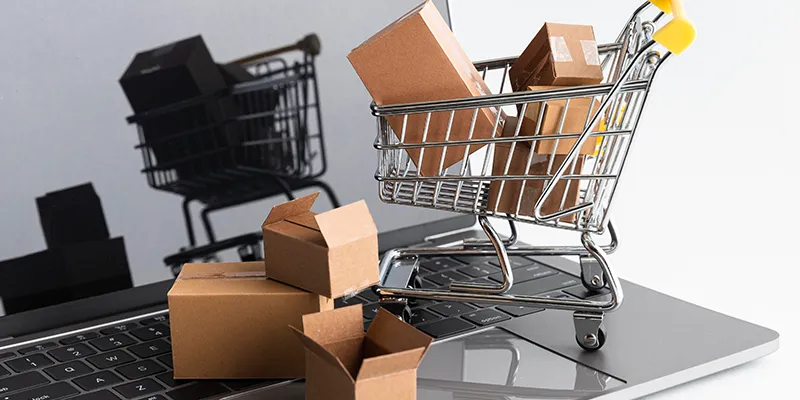The road ahead: how ecommerce can help SMBs recover from the COVID-19 fallout
Ecommerce enablers act as catalysts for empowering small businesses by helping them establish and flourish as online stores.
Preeti, a Lucknow-based small business owner, ran a humble little boutique through which she showcased her designing and sewing skills, while selling some of the town’s best embroidered kurtis, suits, dresses, and more.
Quite popular in and around her neighbourhood, Preeti was earning a substantial amount every month, contributing to her family consisting of her husband and two children. And then, the COVID-19 outbreak happened, and expectedly, hit her business hard.
During the lockdown, sales plummeted to zero, and her stock remained piled up for months.
India is home to over 60 million SMBs. However, only a little over 30 percent are supporting their businesses with digital technologies. The coronavirus pandemic, since its very outset, crippled the entire SMB sector, and the stark impact on small businesses across the country translated to encumbered revenues, sales, and, in some cases, a complete shutdown of operations.
Against this backdrop, entrepreneurs turned to technological innovation to survive the extreme blow dealt by the viral outbreak.
The pandemic was certainly a wakeup call for the businesses that are operating outside the fray of the country’s digital revolution. At a time when consumers are avoiding stepping out and primarily shopping online, ecommerce was the only option for affected businesses.
Riding a high in the new now
Since the pandemic and the consequent lockdown changed people’s lives in every possible way, it was not surprising that consumer behaviour also transformed drastically, and ecommerce emerged as the only respite.
As a result, the ecommerce sector triumphed over all odds, and registered a 36 percent YOY increase in sales volumes in the final quarter of 2020 alone, even as average order values dropped by close to 5 percent.
It is safe to say that late adopters who have discovered online shopping during the lockdown will not be looking back. Revelling in the upsides from these new online shoppers, ecommerce businesses are still seeing a surge in 2021, and the growth is expected to be steady through the year.
So, can ecommerce also be a growth avenue for small businesses? The answer would be a resounding yes!
With ever-growing smartphone and internet penetration, ecommerce is pervading through the country’s hinterlands, offering new opportunities for small and medium business owners across socio-economic paradigms. Future growth is imminent.

Ecommerce for SMEs to unlock growth prospects
Preeti grappled with the impact of the coronavirus outbreak on her business. But that was in March 2020.
Today, she has shut down her physical boutique, and makes all her sales using digital channels. Transforming her phone into her store, she uses chat selling to reach out to potential clients, share pictures of her available stock, and even receive payments.
In doing so, she has been able to expand her geographical presence too, reaching people in different cities and states. Business is flourishing, and Preeti has become an ecommerce expert!
This is the reality of many independent entrepreneurs and small businesses in the age of COVID-19. While the pandemic has hindered traditional channels of selling, it has pushed people to embrace different methods of ecommerce – and they are better for it.
While some are using chat selling, others are flourishing through social selling, which allows them to use social media platforms to engage with their existing customers and reach a wider audience.
In the post-COVID era, social media is the primary channel through which brands will interact with their audience. It is, then, a great idea for small sellers to capitalise on these lucrative channels to unlock more opportunities and grow their business.
At this juncture, it is safe to say that creating an online presence to drive sales is no longer just an option, but a necessary step for businesses to stay afloat and thrive in the new normal. However, whether it is through a marketplace or social media, entering the ecommerce space can be tough.
Bridging the digital gap
Entering the ecommerce ecosystem is always a challenge for novice entrepreneurs, and the pandemic only added to this quandary.
The solution? SMBs looking to make the most of this highly competitive space can depend upon ecommerce enablers who can act as a dream come true for businesses struggling to assume an online presence.
Particularly for those who lack technical know-how, ecommerce enablers offer easy access to technology and the much-needed handholding to start selling online.
A remarkable benefit of new age ecommerce enablers is that they allow entrepreneurs to choose the most comfortable way to carry out their business. Entrepreneurs and business owners can pick their storefront - chat selling, social selling, marketplace selling, or selling through a website – and leave the backend operations to the enabler.
In doing so, they can simply upload their products and start selling to a vast consumer base. This is the perfect, most dynamic, and flexible solution for those looking to dip their toes in the strong currents of the ecommerce space. Simply put, ecommerce enablers act as catalysts that work towards empowering small businesses by helping them establish and flourish as online stores.
The COVID-19 period bore witness to countless success stories about small businesses leveraging ecommerce to sail through this challenging time. For instance, numerous Kirana stores turned to ecommerce enablers to digitise their operations, and meet the evolving needs of consumers while sustaining their businesses.
Several homepreneurs turned their hobbies into valuable social selling ventures with the help of the technological solutions so easily available to them. With advanced tech-enabled features such as click and collect, contactless payments, and more, ecommerce enablers are the most lucrative way forward for SMBs.
With systematic support from the central and state governments, industry bodies, and ecommerce enablers, SMBs will be able to recover from the pandemic’s effects, and look ahead towards a prolific future.
Edited by Anju Narayanan
(Disclaimer: The views and opinions expressed in this article are those of the author and do not necessarily reflect the views of YourStory.)







